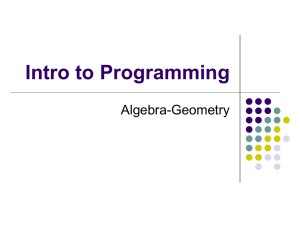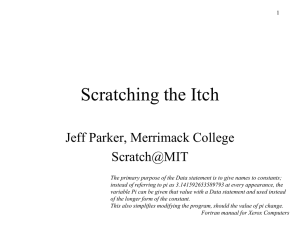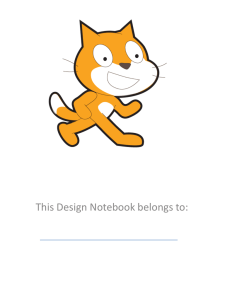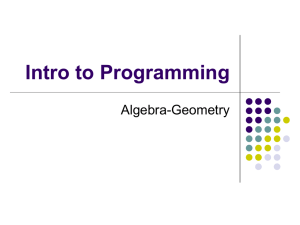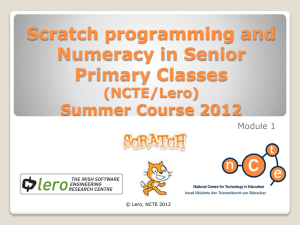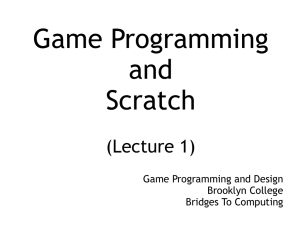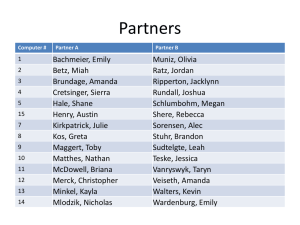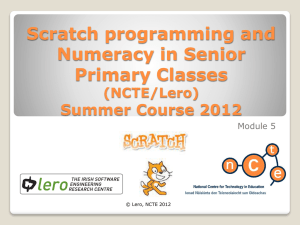Skip-Counting
advertisement
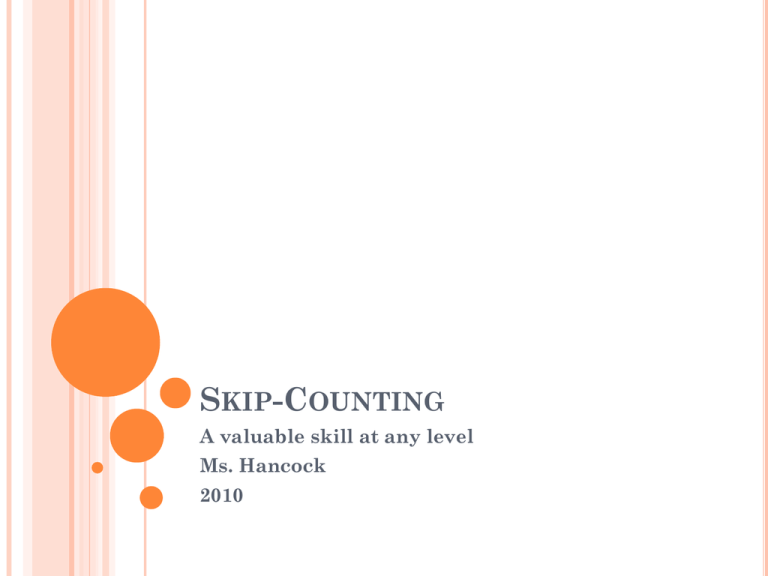
SKIP-COUNTING A valuable skill at any level Ms. Hancock 2010 SKIP-COUNTING Often taught in the latter part of First Grade and through possibly the Third Grade. In higher grades multiplication is taught in its place. Both are sound, valid skills necessary for students to be successful in school and life. WHAT HAPPENS TO SKIP-COUNTING? Why do we stop teaching and using skip-counting in our classrooms? Is it . . . Because once a student learns multiplication it becomes a skill no longer necessary for one’s toolkit? Because students always hated skip-counting by anything other than 2’s, 5’s, 10’s, and 25’s? or is it . . . Because we as teachers forget the value of the skill in light of TAKS (STAAR) requirements? Because we’ve always done it that way? WHY DOES SKIP-COUNTING REMAIN A VALUABLE TOOL? First, and foremost, it keeps our minds active and flexible. If students are using their brains, they’re less apt to get themselves into trouble. Keeping one’s mind flexible may aid in encouraging creativity. May help stave off the onset of Alzheimer's or ameliorate the symptoms. It can be fun to see how far you can get before stumbling. WHY DOES SKIP-COUNTING REMAIN A VALUABLE TOOL? It can be used in a variety of places. Grocery store – everything is not a multiple of the same price. You might have 3 items at $2.60 and 2 items at 1.50: $2.60…$5.20…$7.80…$9.30…$10.80 /or/ $2.60 times 3 = $7.80; $1.50 times 2 = $3.00; $7.80 plus $3.00 = $10.80. Both arrive at the same answer, but in the first example each item is handled only once. WHY DOES SKIP-COUNTING REMAIN A VALUABLE TOOL? It can be used for a variety of reasons . . . The only thing that changes is the starting place. Start at 2 and count by 2’s: 2, 4, 6, 8, 10, 12, 14 . . . . Start at 3 and count by 2’s: 3, 5, 7, 9, 11,13, 15 . . . . Start at -0- and count by 13’s: 13, 26, 39, 52, 65 . . . . Start at 266 and count by 7’s: 273, 280, 287, 294 . . . . etc. WHAT WE KNOW . . . Students want to be engaged Students love to play games on the computer Students want graphics, sounds, and movement Teachers want their students to be engaged Teachers want their students to learn Teachers want to “work smarter, not harder” SO, WHAT CAN WE DO? Incorporate SCRATCH into your daily routine! SCRATCH MAIN SCREEN SCRATCH is an intuitive, easyto-learn software that can be used: •To engage students in games to assist their learning. •Teach students beginning programming skills. •Provide teachers with additional ways to assist student learning. •Does not require strong programming skills. •Many lessons already online and ready-touse! SCRATCH (LOCATE DESIRED FILE) Let’s start with a lesson already available: SkipCounting! Follow these easy steps: 1. Find the SCRATCH file on your desktop. 2. Double-click on the file name. SCRATCH MAIN SCREEN Since this program has already been written: Click on the Full Screen” Button (Found in the upper righthand corner) SCRATCH (IN FULL SCREEN PRESENTATION MODE) Welcome to SCRATCH! To begin program, click on the little green flag in the upper right-hand corner . . . . SCRATCH (IN FULL SCREEN PRESENTATION MODE) Today we are going to learn to count by 2s. SCRATCH (IN FULL SCREEN PRESENTATION MODE) Enter the number you want to start with here and click on “enter” SCRATCH (IN FULL SCREEN PRESENTATION MODE) We will start with the number 2 SCRATCH (IN FULL SCREEN PRESENTATION MODE) Notice that the “Current Number” is now the number you chose to begin with. Follow the directions: If we add 2 (to the current number), how many do we have?” SCRATCH (IN FULL SCREEN PRESENTATION MODE) Notice that the “Current Number” is now the number you entered. The Cat has GROWN! Your answer was correct! Follow the directions: If we add 2 (to the current number), how many do we have?” SCRATCH (IN FULL SCREEN PRESENTATION MODE) Oh no! An incorrect response has been entered! The Cat has DISAPPEARED and a Purple Monster has taken his place. Look at the current number again. Follow the directions: Try again. If we add 2 (to the current number), how many do we have?” SCRATCH (IN FULL SCREEN PRESENTATION MODE) Eureka! You entered the correct answer! Notice that the “Current Number” is now the number you entered. The Cat is BACK! Your answer was correct! Follow the directions: If we add 2 (to the current number), how many do we have?” (You may also click on the small STOP sign in the upper right-hand corner and the program will end) And there you have it . . . Using SKIP-COUNTING A valuable skill at any level Ms. Hancock 2010 to teach.
